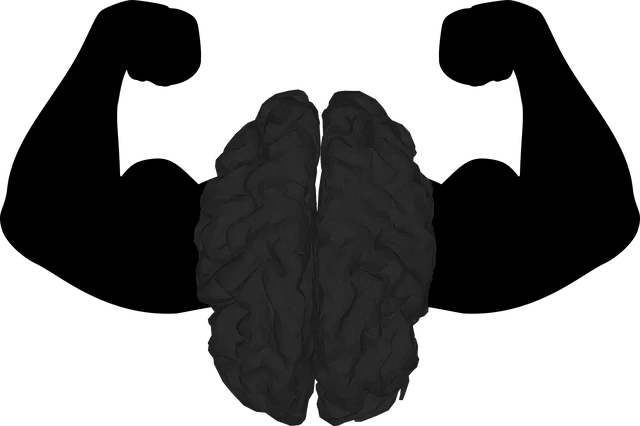Kaiser Permanente mental health centers in Parker are dedicated to improving diagnostic accuracy through evidence-based practices, stigma reduction, and patient-centric approaches. The Parker Model emphasizes holistic strategies, integrating emotional regulation and qualitative data analysis for nuanced diagnoses. Incorporating diverse patient feedback, specialized clinician training, and continuous quality improvement initiatives enhance treatment effectiveness, especially for at-risk populations, as reflected in positive Kaiser Permanente mental health center reviews Parker.
Mental illness diagnosis accuracy is a critical aspect of patient care, especially at large healthcare providers like Kaiser Permanente. This article explores efforts to enhance diagnosis precision at Kaiser Permanente Mental Health Centers. We delve into the challenges faced, introducing the Parker Model—a novel approach aimed at improving accuracy. Additionally, we discuss incorporating patient feedback, training initiatives for clinicians, and continuous quality improvement strategies. By focusing on these areas, especially through the lens of Kaiser Permanente mental health center reviews and the Parker Model, we aim to advance diagnostic practices.
- Understanding Diagnostic Challenges at Kaiser Permanente Mental Health Centers
- The Parker Model: A Novel Approach to Enhancing Diagnosis Accuracy
- Incorporating Patient Feedback and Reviews in the Assessment Process
- Training Initiatives for Clinicians: Building Capacity for Better Diagnoses
- Continuous Quality Improvement: Monitoring Progress and Adapting Strategies
Understanding Diagnostic Challenges at Kaiser Permanente Mental Health Centers

At Kaiser Permanente mental health centers, navigating diagnostic challenges is an ongoing effort to ensure accurate and timely assessments for patients. The complexity of mental health disorders often presents a unique hurdle, as symptoms can overlap between various conditions. For instance, depression and anxiety may exhibit similar presentations, making differential diagnosis crucial. Additionally, the integration of cultural factors and individual experiences further complicates the process, emphasizing the need for culturally sensitive approaches.
Reviews highlight the importance of continuous improvement in these centers, especially regarding the implementation of evidence-based practices. The development of Mental Wellness Coaching Programs and Stress Reduction Methods has shown promising results in enhancing diagnostic accuracy. Moreover, mental illness stigma reduction efforts play a significant role in fostering an environment where patients feel comfortable seeking help without fear of judgment, thereby improving overall diagnostic efficiency.
The Parker Model: A Novel Approach to Enhancing Diagnosis Accuracy

The Parker Model represents a novel and promising approach to enhancing mental illness diagnosis accuracy at Kaiser Permanente mental health centers. Developed through extensive research, this model focuses on a holistic understanding of an individual’s psychological and social context. By integrating various factors such as emotional regulation, emotional healing processes, and confidence boosting strategies, the Parker Model aims to provide more precise diagnoses. This comprehensive framework ensures that each patient receives a tailored assessment, accounting for unique personal experiences and environmental influences.
Unlike traditional diagnosis methods, which may rely heavily on standardized tools, the Parker Model encourages clinical judges to consider qualitative data from patients’ accounts, interactions with caregivers, and observations during therapy sessions. This nuanced perspective allows mental health professionals at Kaiser Permanente to make more informed decisions, leading to improved treatment plans tailored to individual needs. The model’s emphasis on emotional regulation, for instance, helps in identifying underlying issues that may contribute to mental health challenges, thereby enhancing the overall diagnosis accuracy.
Incorporating Patient Feedback and Reviews in the Assessment Process

Incorporating patient feedback and reviews into the assessment process is a game-changer for mental health centers like Kaiser Permanente’s Parker location. By actively seeking and analyzing patient perspectives, these facilities can gain valuable insights into the effectiveness of their services. Mental Health Awareness plays a crucial role in this approach, as patients are best equipped to identify areas for improvement and share their unique experiences. Reviews from satisfied individuals highlight successful Stress Reduction Methods employed by the center, while those with concerns offer critical feedback that can lead to significant enhancements.
This patient-centric approach not only improves diagnosis accuracy but also fosters a sense of trust and transparency. Incorporating at-risk populations’ voices ensures that mental health services are tailored to meet diverse needs, promoting Self-Esteem Improvement and overall well-being. By embracing feedback as a tool for growth, Kaiser Permanente’s Parker Mental Health Center reviews contribute to a more comprehensive understanding of their impact and guide future initiatives.
Training Initiatives for Clinicians: Building Capacity for Better Diagnoses

At Kaiser Permanente mental health centers, like those reviewed by Parker, clinicians are increasingly undergoing specialized training initiatives aimed at enhancing diagnosis accuracy. These programs focus on refining assessment techniques and cultivating empathy-building strategies that encourage open communication with patients. By investing in their professional development, these centers strive to empower healthcare providers with the necessary tools to recognize subtle symptoms and nuances often associated with mental health conditions.
The training includes workshops centered around inner strength development and burnout prevention, acknowledging the vital role of self-care in maintaining clinical objectivity. These initiatives not only improve diagnosis accuracy but also foster healthier patient-clinician relationships, ensuring that individuals seeking mental health support receive more personalized and effective treatment plans.
Continuous Quality Improvement: Monitoring Progress and Adapting Strategies

At Kaiser Permanente mental health centers, like those reviewed by Parker, continuous quality improvement is a cornerstone of their approach to enhancing diagnosis accuracy. Regular monitoring of patient outcomes and feedback mechanisms play a pivotal role in this process. By analyzing data on treatment effectiveness, referral patterns, and patient satisfaction, healthcare providers can identify areas that require refinement. This adaptive strategy ensures that mental health professionals stay abreast of the latest research and best practices, incorporating them into their diagnostic processes.
Moreover, cultural competency training for healthcare providers and risk assessment tools designed specifically for mental health professionals are integral parts of this continuous improvement effort. Such initiatives aim to mitigate biases and enhance the accuracy of diagnoses by considering patients’ diverse backgrounds and experiences. Emphasizing mental wellness through these adaptive strategies not only improves diagnosis accuracy but also fosters a more inclusive and effective healthcare environment.
Mental illness diagnosis accuracy is a complex challenge, but through innovative approaches like the Parker Model, patient feedback integration, comprehensive clinician training, and continuous quality improvement, Kaiser Permanente mental health centers are making significant strides. By adopting these strategies, they aim to enhance diagnostic precision, ultimately improving patient care and outcomes at Kaiser Permanente and beyond. The Parker Model, in particular, with its focus on holistic assessment and collaboration, has shown promise as a game-changer in mental health diagnosis accuracy.






